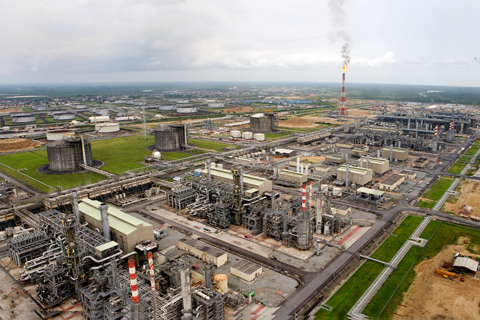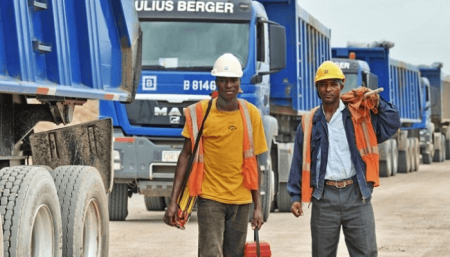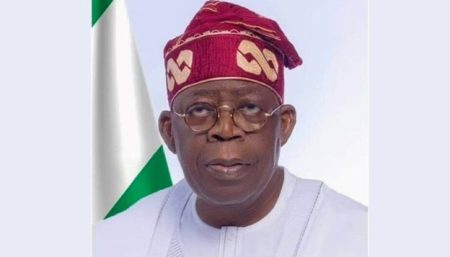
Oscarline Onwuemenyi
15 October 2017, Sweetcrude, Abuja – The Managing Director and Chief Executive Officer of the Nigeria Liquified Natural Gas (NLNG) Limited, Mr. Peter Attah, has disclosed that the Board of Directors of the company have given approval for the Final Investment Decision for production on Train 7.
Attah, who was speaking at the send-off and welcome ceremony for out-going General Manager, Human Resources of NLNG, Mr. Peter Odjoji and newly-appointed GM, Mrs. Eucharia Ezeani, respectively, in Abuja, said the company was primed to regain its place as one of the top three gas exporters in the world with the coming onshore of Train 7.
He said, “I am delighted tonight to thank especially the Board members for approving that the Executive management can go straight ahead and work towards delivering the Final Investment Decision for Train 7 Plus. This is a dream come true for us.”
He added that “We were the fastest growing LNG company in the world between 2000 and 2006. Every i8 months we brought up a new train until we got to Train 6 in 2007. So, for ten years we have not brought up any train. This is undoubtedly a watershed moment for the NLNG and Nigeria.”
He noted that with six trains currently operational, the entire complex is capable of producing 22 million tonnes per annum (mtpa) of liquified natural gas (LNG), and 5 mtpa of natural gas liquids (NGLs) from 3.5 billion (standard) cubic feet of natural gas intake.
“Plans for building Train 7 that will lift the total production capacity to 30 mtpa of LNG are currently progressing with some preliminary early site preparation work initiated.”
The MD added that the company was involved in a lot of projects towards growing the Nigerian economy and improving the lives of communities where it operates.
He noted that only on Thursday, the Vice President, Prof. Yemi Osinbajo was in Rivers State to flag off the 39km Bonny-Bodo road, describing it as “another vision the NLNG is helping to bring to light.”
“The project is N120 billion, and we have committed to paying N60 billion, which is half of the entire project. That road will transform the Niger Delta region. I think the NLNG is set for even greater things.
“On top of that, we have also signed a MoU with the Bonny Kingdom to contribute N3 billion every year for the next 25 years to transform the Bonny Kingdom into a mini-Dubai from the resources by the sea. The vision we see is a road from Port Harcourt to Bonny; of a Finima airstrip that is open to commercial flights; a vision of community health insurance scheme, and 24-hours guaranteed electricity provided by the NLNG,” Attah said.
He added, “Today, we have contributed over $90 billion in revenue, and $15 billion to the federal government, and more than $6 billion in taxes since NLNG became taxpaying in 2009; no other company comes close to NLNG in tax paying to the Nigerian economy
Speaking recently in a television programme, the Group Managing Director of the Nigerian National Petroleum Corporation, Dr. Maikanti Baru stated that the Federal Government would do everything to ensure the take-off of Bonny NLNG Train 7 and the Brass LNG in the months ahead after which the Olokola LNG would come on board if the fundamentals were strong.
He stated that the NNPC was refocusing on the Brass LNG and rebuilding the confidence of investors on the project after the exit of ConocoPhillips a few years ago, adding that Nigerians and the Federal Government would gain a lot from the project in terms of taxes, royalties, and profits.
He noted that when the project comes on stream, it would create massive employment opportunities for Nigerians.
“We are refocusing on Brass LNG and rebuilding the confidence of the IOCs in the project. It has a lot to do for Nigerians as it will create employment opportunities and create more revenue opportunities for the Federal Government. We will continue to put the right enablers in place for the project to go on,” Dr. Baru averred.
The NNPC GMD described the Bonny NLNG as one of the biggest success stories of the Nigerian oil and gas industry since it came on stream in 1995, affirming that the project has generated $90 billion revenue, $30 billion dividends and contributed 4 percent to the country’s Gross Domestic Product since inception.
Dr. Baru noted that the focus of the industry was to ensure the stable security of investment, personnel, and investors and to ensure that all community issues were addressed in order to boost revenue for the government and investors from the industry.



